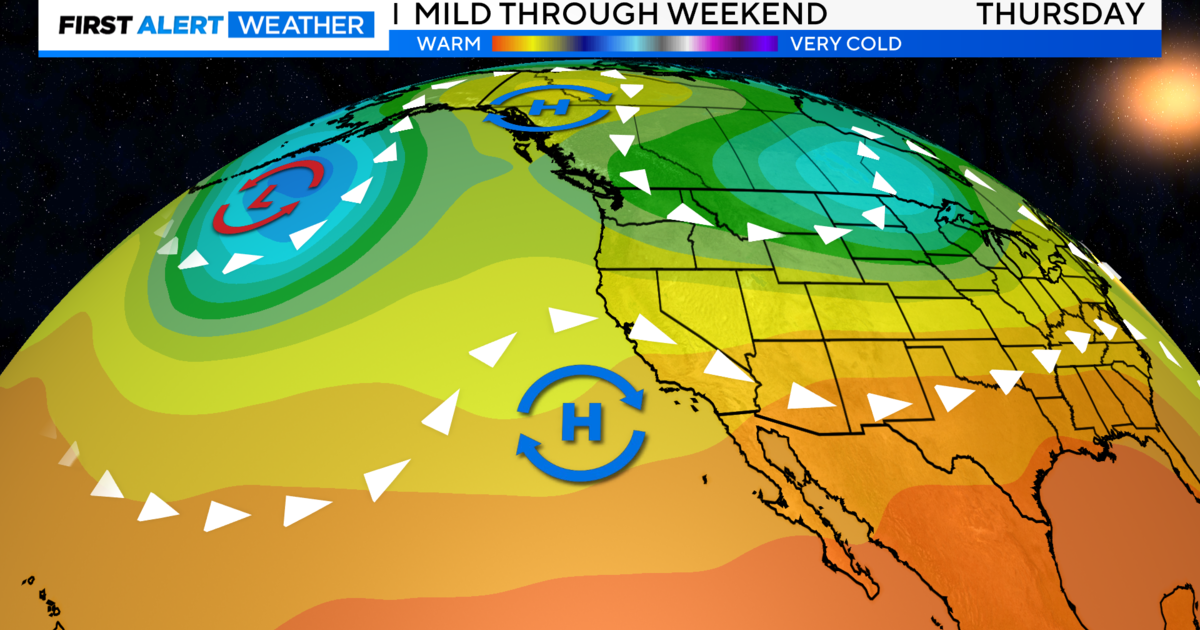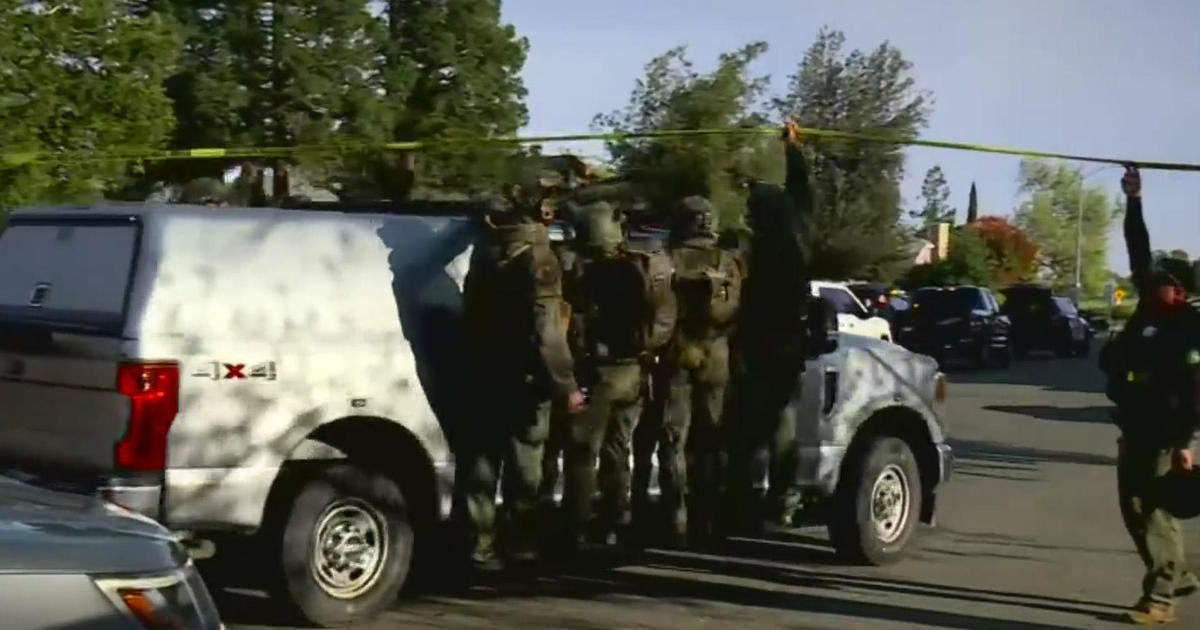Crews In Calif. Work To Open Roads, Repair Damage
SAN FRANCISCO (AP) -- Crews along California's Central Coast worked Friday to reopen a highway through the Big Sur area and repair damage from a flood that forced the evacuation of a mobile home park, as the region got a respite from a powerful storm that brought heavy wind and rain.
Residents in the 45-unit Pacific Cove Mobile Home Park in Santa Cruz County were ordered to evacuate on Thursday when a failed drainage pipe tore a roughly 15-by-100 foot hole in the ground near homes and sent a 3-foot surge of water into Capitola Village, authorities said.
"The water was moving really rapidly and carrying debris, garbage cans, kids' toys, chairs," said Pamela Bone, 52, a resident of the mobile home park. "My neighbor and I were looking across from each other at the river running between us."
Bone said the area around her home was left caked in mud but the home itself had remained dry.
"I think we're the lucky ones," she said.
Four of the homes have been red-tagged, said Derek Johnson, a city spokesman, and crews were trying to restore electricity and other utilities to the area. The gas was not expected to be back on for at least another week.
Capitola is just south of Santa Cruz, where this month's tsunami caused millions of dollars of damage to the harbor.
The flooding from the storm Thursday also affected about two dozen businesses. Damage assessments have not yet begun.
Farther south, Monterey County Farm Bureau officials said farmworkers were having a hard time getting into the fields because of the rain. As a result, leafy green crops like lettuce and broccoli were sitting in the fields unpicked.
A farm levy on the Salinas River near Gonzales broke Thursday, completely flooding and damaging 150 acres of a nearby lettuce field.
Rain continued to fall on Friday and was expected throughout the weekend. But National Weather Service meteorologist Austin Cross said it would not be as heavy as Thursday's storm.
That storm caused a mud and rock slide that isolated nearly 40 miles of Pacific Coast Highway through Big Sur, shutdown Interstate 80 in the Sierra Nevada and knocked out power to tens of thousands of people.
Crews worked on clearing debris from Highway 1 south of the community of Big Sur, although they did not estimate when the road would reopen, said Jim Shivers, a spokesman for the California Department of Transportation.
All lanes of Interstate 80 -- the main highway between Northern California and Nevada -- reopened to passenger vehicles with chains on Friday. The reprieve came after a full day with traffic halted in one or both directions for white-out conditions and snow slides. Truck traffic remained halted from Applegate to the Nevada state line.
"We're still holding trucks because there's not enough space for them to go through," said Carol Herman, a spokeswoman for the California Department of Transportation in Marysville. As much as 3 inches of snow an hour fell in the mountains and plows couldn't keep up, she said.
As of Friday morning, Herman said, 704 inches of snow had fallen in the Sierra high country this season -- almost 59 feet. The highest snowfall ever -- according to Caltrans records -- was 65 feet in the 1950-51 snow season, she said.
Elsewhere in the state, residents around Clear Lake stocked up on sandbags, as the lake rose above flood stage for the first time in 13 years.
The lake 100 miles northwest of Sacramento was expected to rise even more as it collected storm runoff over the next few days, said Tom Smythe, a water resources engineer with Lake County.
Smythe said some homes around the lake have already experienced flooding and others could be inundated in the coming days. But he said he did not anticipate the kind of flooding that occurred in 1998, when the lake was two feet higher than it was expected to be this time.
Meanwhile, homeowners in the San Francisco Bay area city of San Pablo planned to meet with city officials to figure out how to shore up a hillside giving way beneath several homes.
Three homes above the slide and three homes below were threatened by the collapse, said Kelsey Worthy, assistant city manager. Worthy estimated the slide was about six feet deep.
The city cannot intervene directly because the slide is on private property, he said. But officials would help guide homeowners through the process of contracting with structural engineers and could also seek state and federal emergency funds to pay for the work.



